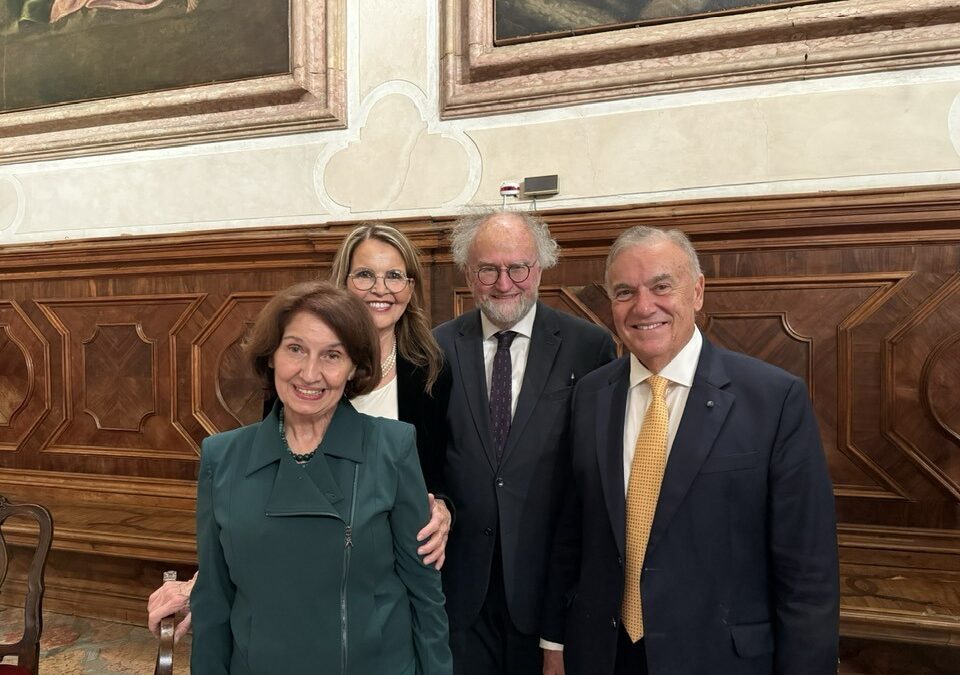
by Herdís Þorgeirsdóttir | 15.10.2025 | Fólk
Forseti Norður Makedóníu (opinbert heiti Lýðveldið Norður-Makedónía, land á Balkanskaga sem varð til við upplausn Júgóslavíu 1991) heitir Gordana Siljanovska-Davkova og var áður fulltrúi lands síns í Feneyjanefnd Evrópuráðsins. Hún er hér á mynd á októberfundi nefndarinnar sem fagnaði 35 afmæli sínu ásamt Herdísi Þorgeirsdóttur, Jan Velaers frá Belgíu og Michale Frendo frá Möltu. Gordana sem kjörin var forseti landsins 2024 hafði áður tekið þátt í forsetakosningum en tapað. Hún var fulltrúi í Feneyjanefnd frá 2008 til 2016. Gordana er fædd í Ohrid í þeim hluta fyrrum Júgóslavíu sem varð eftir upplausn Sovétríkjanna Norður Makedónía. Hún lauk doktorsnámi í lögum 1994 frá háskólanum í Ljubliana. Hún var skipuð prófessor við lagadeild háskólans í Skopje 2004.
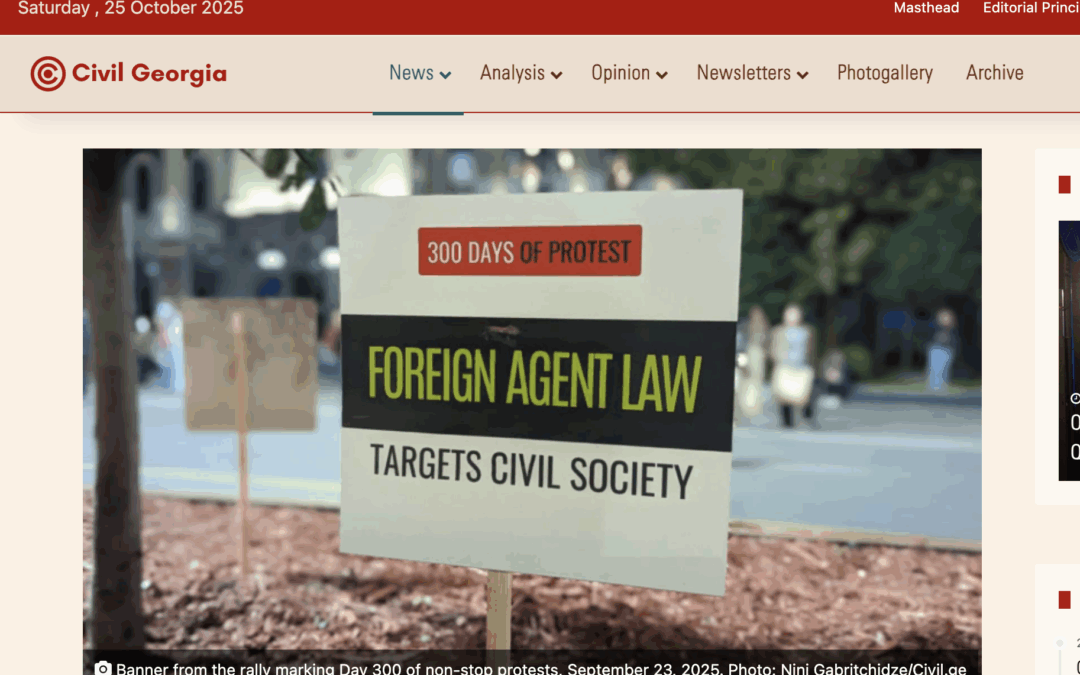
by Herdís Þorgeirsdóttir | 15.10.2025 | Almanak, Mannréttindi & pólitík
Feneyjanefnd Evrópuráðsins á sviði mannréttinda og stjórnskipunarréttar samþykkti á fundi sínum í október álit varðandi nýlega samþykkt lög í Georgíu sem herða reglur um erlenda fjármögnun fjölmiðla og félagasamtaka. Nefndin hvetur til þess að umdeild ákvæði laganna verði annaðhvort felld úr gildi eða endurskoðuð.
Sjá hér álitið.
Álitið sem er 24 blaðsíður og samið af Veroniku Bilkova, Herdísi Kjerulf Þorgeirsdóttur og Zlatko Knezevc, var unnið að beiðni eftirlitsnefndar þings Evrópuráðsins (PACE). Þar er farið yfir georgísku útgáfuna af svokölluðum lögum um skráningu erlendra aðila (Foreign Agents Registration Act, FARA), auk nýlegra breytinga á lögum um styrki, lögum um fjölmiðla og lögum um stjórnmálasamtök. Öll fjögur lögin voru samþykkt af georgíska þinginu á vormánuðum en meirihluti þess eru fulltrúar flokks olígarkans Bidzina Ivanishvili,
Feneyjanefndin hvetur til þess að georgísku FARA-lögin og bann við erlendri fjármögnun fjölmiðla verði felld úr gildi, og mælir jafnframt með því að breytingar á styrkjalögunum, sem kveða á um að erlendir styrkveitendur verði að fá samþykki stjórnvalda áður en þeir veita innlenda styrki verði annaðhvort felldar niður eða að minnsta kosti „í grundvallaratriðum endurskoðaðar“.
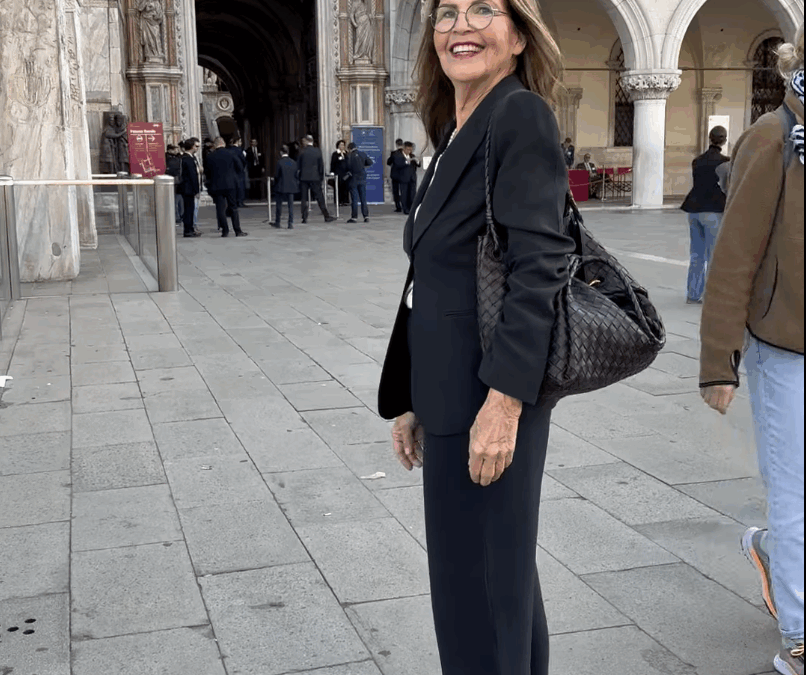
by Herdís Þorgeirsdóttir | 11.10.2025 | Almanak
Nú stendur yfir sýning í Hertogahöllinni (Palazzo Ducale) við Markúsartorg í Færeyjum á sögu og verkum Feneyjanefndar Evrópuráðsins. Sýningin “La Democarzia attraverso il Dritto. From the Serenissima Republic to the Venice Commission of the Council of Europe” var opnuð hinn 11. október sl í tilefni af 35 ára afmæli Feneyjanefndar. Sýningin “Lýðræði með lögum. Frá friðsælasta lýðveldinu til Feneyjanefndar Evrópuráðsins” er í einum sal Hertogahallarinnar, sem er meistaraverk í gotneskum arkitektúr, ein fegursta bygging heims og um aldir íverustaður hertoganna í Feneyjum, stjórnar feneyska lýðveldisins og fangelsi. Hölliin var reist árið 810 og endurbyggð oftsinnis síðan þá bæði í gotnskum stíl og endurreisnarstílnum og er nú safn um sögu og menningu Feneyja.
Sýningin stendur yfir til 6. janúar nk. Þessi einstaka sýning býður gestum í heillandi ferðalag um sögu lýðræðis og réttarríkisins — allt frá arfleifð hins friðsæla feneyska lýðveldis og er undir leiðsögn sérfræðinga Feneyjanefndar. Á sýningunni má sjá skjöl, gripi og fróðleik sem varpa ljósi á áratugi af þróun lýðræðis.
Á sýningunni hangir mynd, sem tekin var af fulltrúum í Feneyjanefnd árið 2003 en þá var Herdís Þorgeirsdóttir varafulltrúi af hálfu Íslands.
Sýningin er afrakstur samstarfs milli Feneyjanefndarinnar, skrifstofu Evrópuráðsins í Feneyjum, ríkisskjalasafnsins í Feneyjum (Archivio di Stato di Venezia), safnasjóðsins Fondazione Musei Civici di Venezia (MUVE) og héraðsráðsins í Veneto (Consiglio Regionale del Veneto).
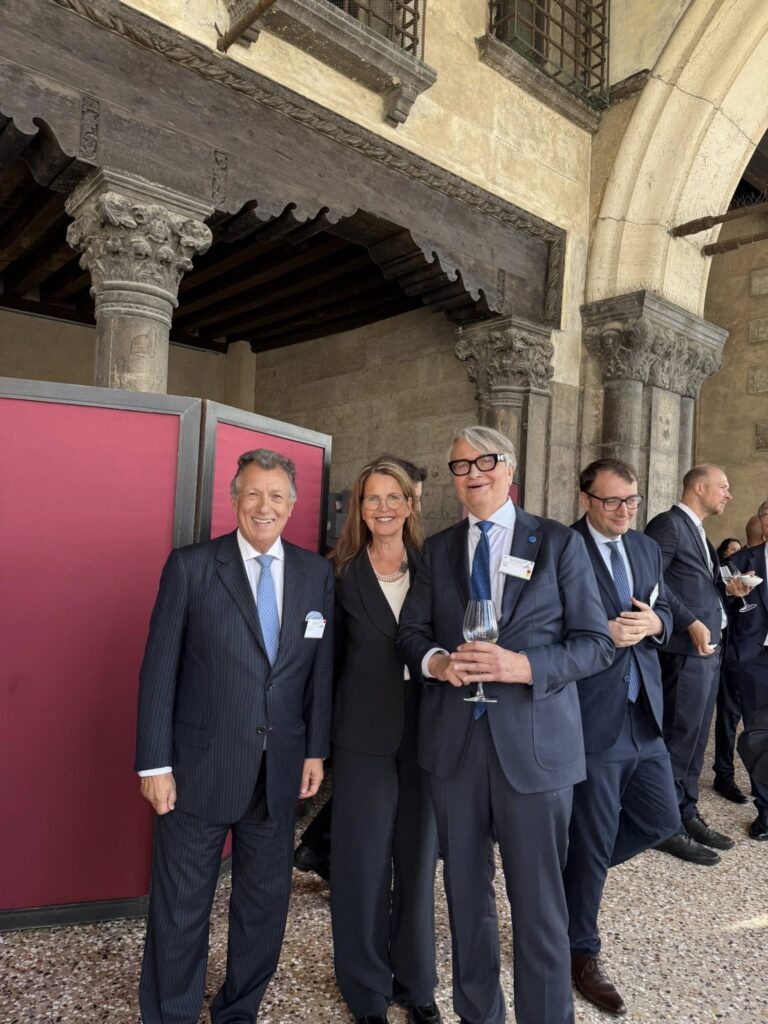
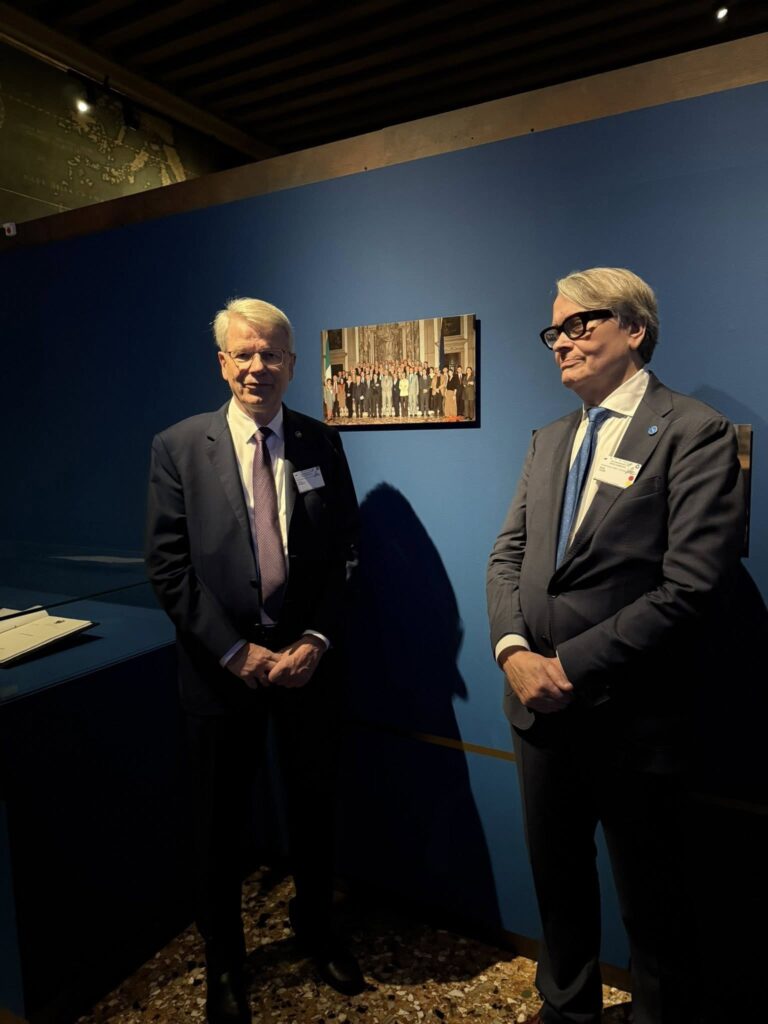
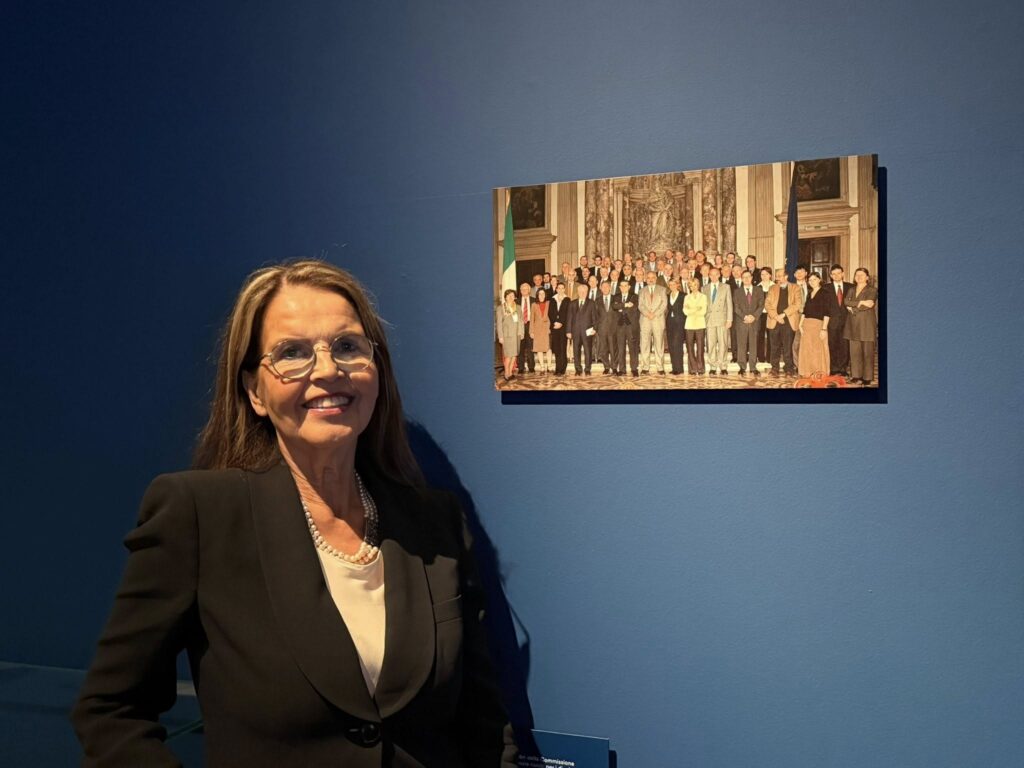
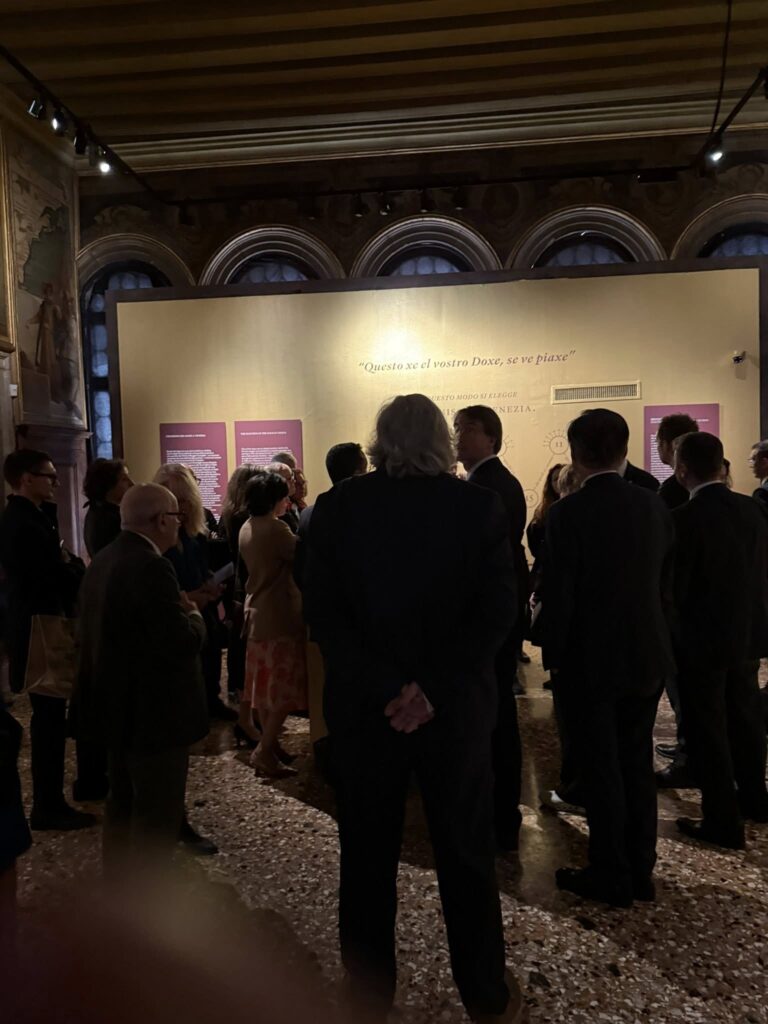
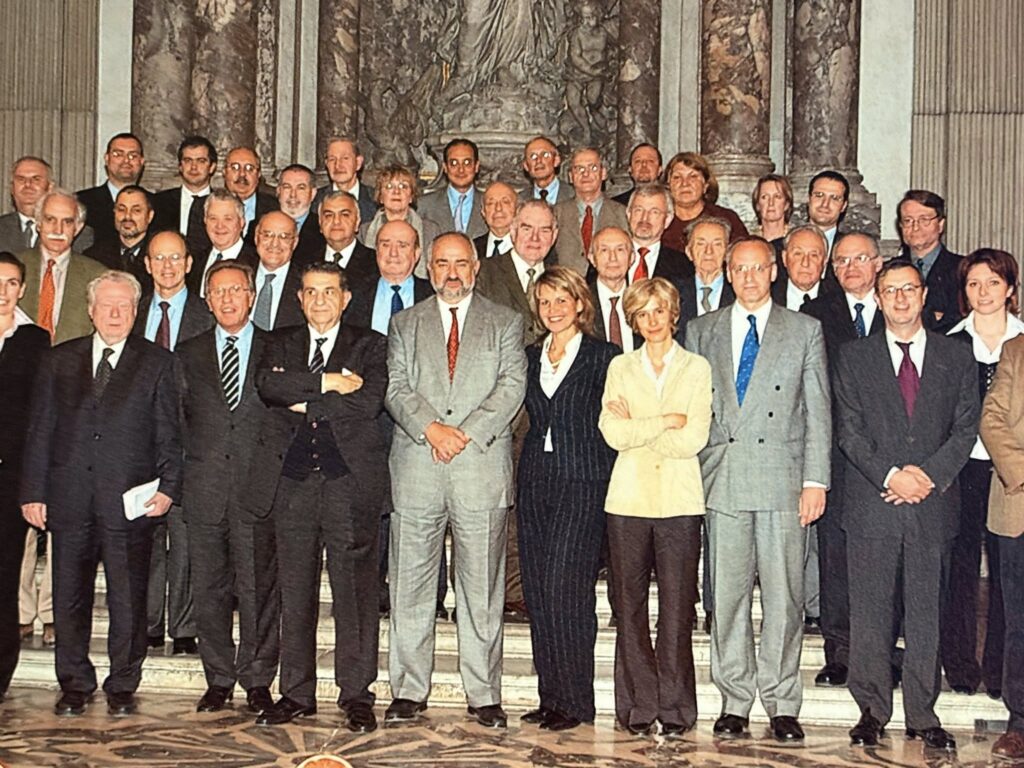
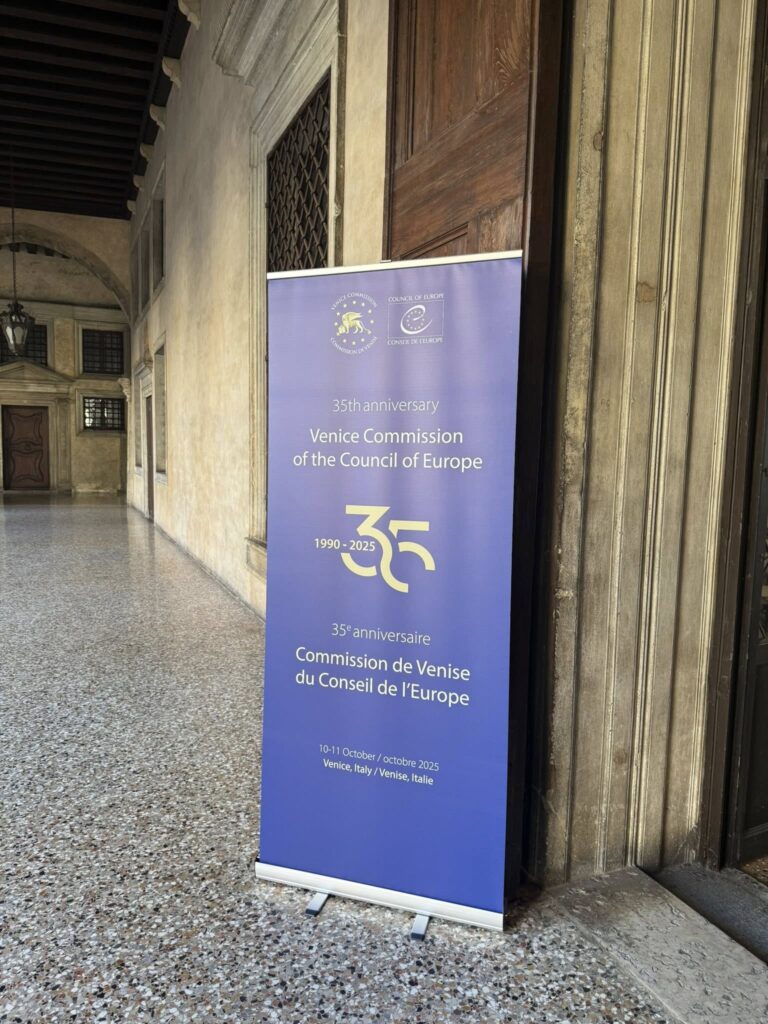
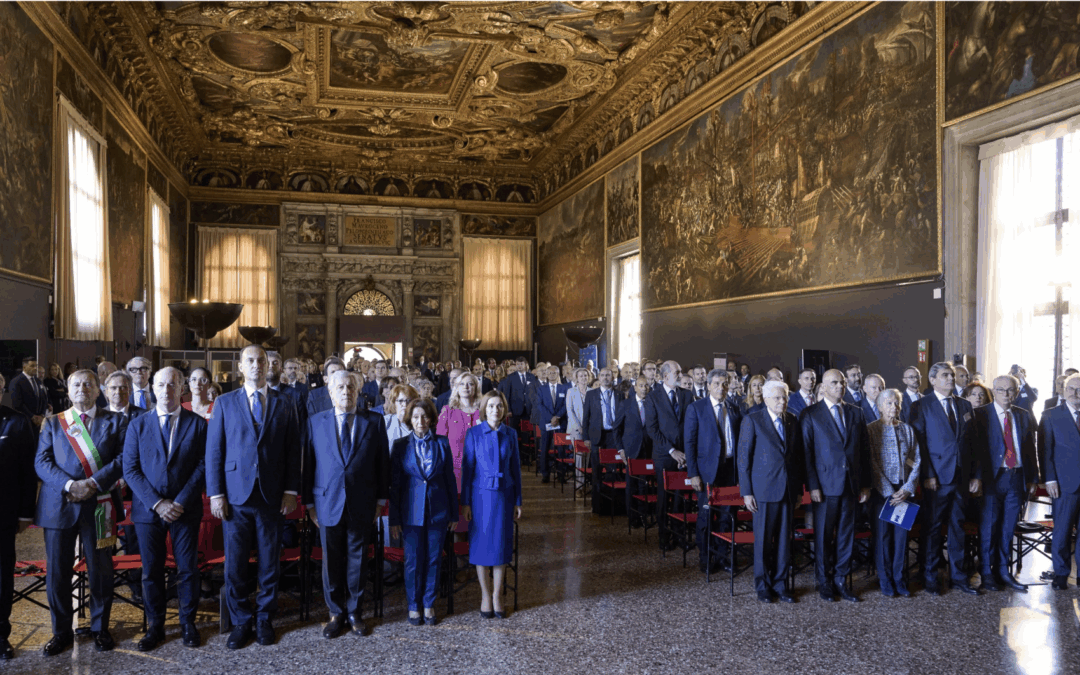
by Herdís Þorgeirsdóttir | 11.10.2025 | Almanak
Þessi virðulega ljósmynd er tekin í glæstum sal hertogahallarinnar við Markúsartorgið í Feneyjum á 35 ára afmæli Feneyjanefndar, hinn 11. október. Feneyjanefndin var sett á laggirnar af Evrópuráðinu árið 1990 en í henni sitja lögspekingar frá öllum aðildarríkjum Evrópuráðsins (46 eftir að Rússlandi var vikið úr ráðinu). Hlutverk nefndarinnar er að veita lögfræðileg álit á lagasetningu í aðildarríkjunum í stjórnskipunarrétti og mannréttindum. Í Feneyjanefndinni sitja hins vegar fleiri aðilar en frá aðilarríkjum Evrópuráðsins eða frá 61 ríki utan Evrópuráðsins (Bandaríkin, Kanada, Mexíkó, Perú, Argentína, Brasilía, Chile, Costa Rica, Alsír, Marokkó, Túnis, Ísrael, Kazaksthan, Kyrgyzstan, Lýðveldið Kórea, Kosovo. Fulltrúi Íslands í nefndinni er Dr. Herdís Kjerulf Þorgeirsdóttir.
Afmælisþingið sátu m.a. forseti Ítalíu, Sergio Mattarella (í fremstu röð á myndinni), forseti Norður Makedóníu og Moldóvu, framkvæmdastjóri Evrópuráðsins, borgarstjóri Feneyja og fleiri gestir.
https://www.coe.int/en/web/venice-commission/-/celebrating-35-years-of-democracy-through-law

by Herdís Þorgeirsdóttir | 4.07.2025 | Mannréttindi & pólitík
Mannréttindadómstóll Evrópu kvað upp dóm í máli Ludes og fleiri gegn Frakklandi hinn 3. júlí þar sem hann kvað frönsk stjórnvöld ekki hafa gerst sek um brot á tjáningarfrelsi loftslagsaðgerðasinna með skilorðsbundnum sektum. Aðgerðasinnarnir höfðu með sameiginlegu átaki stolið innrömmuðum ljósmyndum af Macron forseta úr ráðhúsum í mörgum borgum Frakklands. Aðgerðasinnarnir vildu vekja athygli á aðgerðaleysi franskra stjórnvalda í loftslagsmálum með því að nota myndirnar í mótmælum árið 2019. Mannréttindadómstóllinn benti á að dómstólar í Frakklandi hefðu ekki gengið lengra en þörf krefði þar sem aðgerðasinnarnir hefðu neitað að skila myndunum aftur. Bent var á að þeir hefðu getað náð sama markmiði með því að taka þær einfaldlega niður af veggjum hinna opinberu bygginga. Hinar skilyrðu sektir voru á bilinu 200 til 500 evrur (30 til 70 þúsund ísl. Kr.) og því hóflegar að mati dómstólsins. Í öllum ráðhúsum Frakklands eru myndir á veggjum af Macron forseta þar sem hann stendur við skrifborð sitt með tvo farsíma fyrir framan sig og mynd af De Gaulle fyrrum Frakklandsforseta og stríðshetju í bakgrunni.













